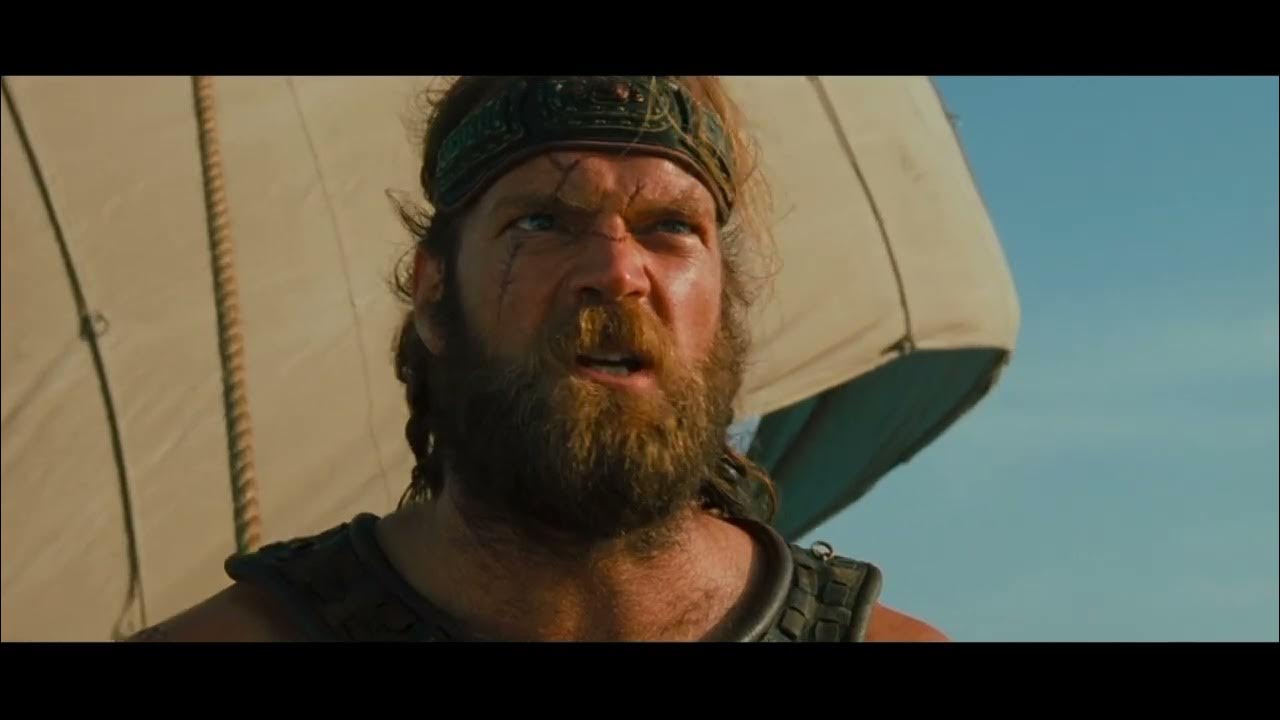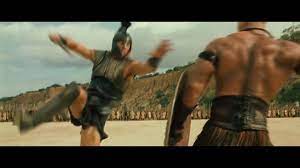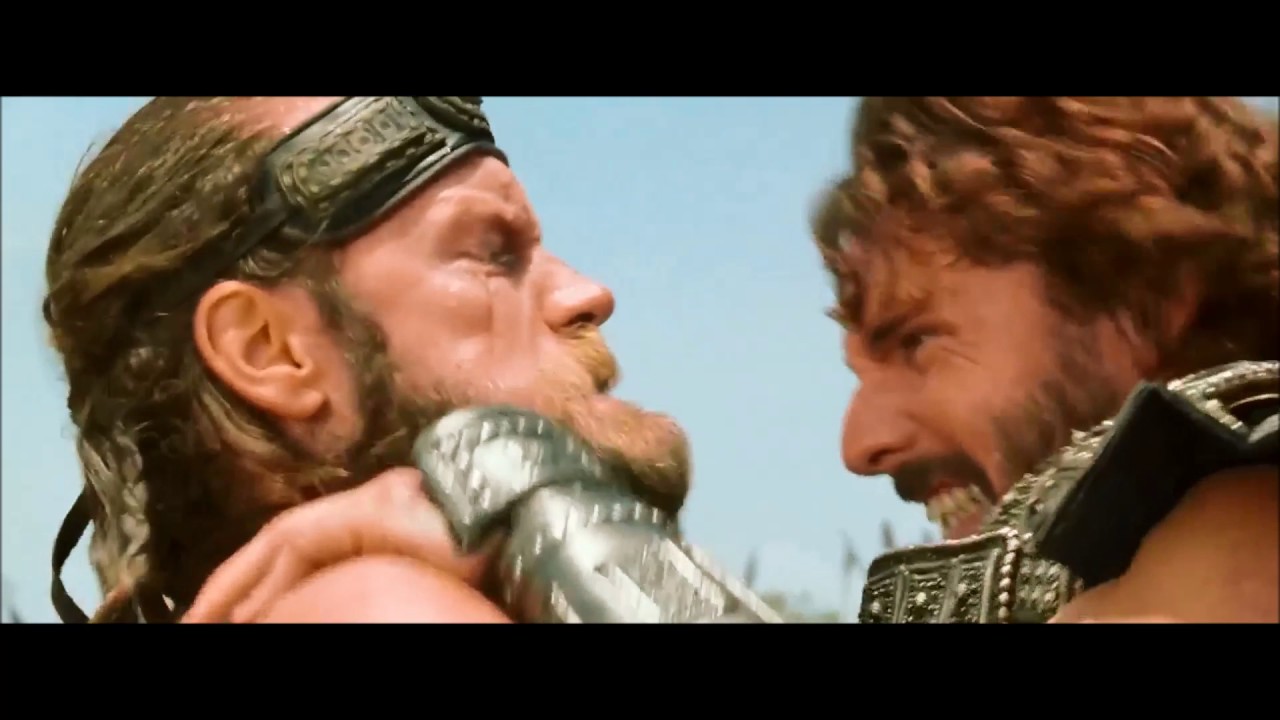🎬 Troy (2004

Review of Troy (2004)
Wolfgang Petersen’s Troy is an epic retelling of Homer’s Iliad, a tale of war, passion, and the collision of human ambition and divine will. Released in 2004, this sprawling historical drama brings the legendary Trojan War to life with a star-studded cast, stunning visuals, and intense battle sequences. While it takes creative liberties with its source material, Troy succeeds in capturing the grandeur and tragedy of one of history’s greatest legends.
A Timeless Story of Love and War
The film opens with the abduction of Helen (Diane Kruger), Queen of Sparta, by Paris (Orlando Bloom), the prince of Troy. This act of love and defiance sets the stage for a war that will pit the mighty city of Troy against the armies of Greece, led by the ambitious King Agamemnon (Brian Cox). At the heart of the conflict are two legendary figures: Achilles (Brad Pitt), a demigod-like warrior seeking eternal glory, and Hector (Eric Bana), the noble prince of Troy fighting to protect his city and family.
As the Greeks lay siege to Troy, personal vendettas, political machinations, and romantic entanglements unfold, creating a tapestry of human emotion against the backdrop of war. The film’s narrative deftly weaves together action and drama, exploring themes of honor, loyalty, and the cost of ambition.
A Stellar Cast
Brad Pitt delivers a commanding performance as Achilles, portraying the character’s arrogance, ferocity, and inner conflict with intensity. Pitt’s physical transformation and precise combat choreography bring Achilles’ legendary prowess to life, while moments of vulnerability hint at the warrior’s humanity beneath his godlike exterior.
Eric Bana’s Hector provides a compelling counterpoint to Achilles. Bana’s portrayal captures Hector’s unwavering sense of duty and his deep love for his family, making him one of the film’s most relatable and tragic characters. The dynamic between Achilles and Hector culminates in one of the film’s most memorable and heart-wrenching sequences.
Diane Kruger’s Helen embodies the beauty that launched a thousand ships, though her character is more symbolic than fully developed. Orlando Bloom’s Paris, while suitably naive and impulsive, struggles to rise above the limitations of his character’s role in the narrative.
Brian Cox is delightfully ruthless as Agamemnon, while Sean Bean’s Odysseus provides a voice of wisdom and pragmatism amidst the chaos. Peter O’Toole’s Priam, King of Troy, brings gravitas and poignancy to the story, particularly in his interactions with Achilles.
Spectacular Visuals and Battle Sequences
Visually, Troy is a feast for the eyes. The film’s grand scale is evident in its sprawling sets, elaborate costumes, and meticulously crafted props. The city of Troy itself is a marvel, brought to life with a blend of practical effects and CGI that still holds up remarkably well.
The battle scenes are among the film’s highlights, blending gritty realism with cinematic flair. Petersen’s direction captures the chaos and brutality of ancient warfare, from the thunderous charge of armies to the intimate duels between warriors. The choreography of Achilles’ fight scenes, in particular, is a testament to the film’s commitment to authenticity and spectacle.
Themes of Glory and Mortality
At its core, Troy is a meditation on the pursuit of glory and the inevitability of mortality. Achilles embodies the duality of human ambition, torn between his desire for eternal fame and his longing for a simple, meaningful life. His journey mirrors the larger tragedy of war, where the quest for greatness often comes at the expense of humanity.
The film also explores the fragility of love and loyalty in the face of conflict. From Paris and Helen’s doomed romance to Hector’s devotion to his family, the personal stakes of the characters lend emotional weight to the epic battles.
Creative Liberties and Historical Accuracy
While Troy draws inspiration from Homer’s Iliad, it takes significant liberties with the source material. The absence of the gods, a central element in the original epic, shifts the focus to the human drama, grounding the story in a more realistic context. Some fans of the Iliad may find these changes jarring, but they serve to make the film’s themes more accessible to modern audiences.
Additionally, the timeline of events is condensed, and certain characters and subplots are altered or omitted. These choices streamline the narrative but occasionally sacrifice depth and complexity.
A Stirring Score
James Horner’s score is a vital part of Troy’s impact, blending sweeping orchestral themes with haunting melodies. The music enhances the film’s emotional resonance, from the grandeur of battle to the intimacy of its quieter moments. Horner’s work adds an epic quality that perfectly complements the story’s scale.
Conclusion: A Grand and Ambitious Epic
Troy is a visually stunning and emotionally charged film that captures the essence of a timeless legend. While it may not please purists seeking a faithful adaptation of the Iliad, it succeeds as a cinematic spectacle that balances action and drama with thematic depth. The performances of its lead actors, coupled with Wolfgang Petersen’s epic vision, make Troy a memorable and compelling experience.
For fans of historical dramas and grand-scale filmmaking, Troy remains a must-watch. Its exploration of the human condition, set against the backdrop of one of history’s most famous wars, ensures its place as a modern classic in the epic genre.










